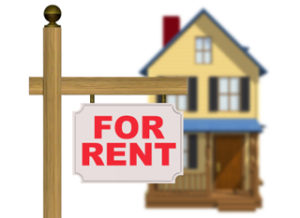
Another source of contention that is almost always avoidable deals with the actions of tenants. As an owner, you are generally responsible for the actions of your tenants within the association. If your tenant violates the association’s governing documents, you will likely receive a warning letter, hearing notice or ultimately you may be served with a lawsuit. This possibility can be avoided by ensuring that you provide copies of all governing documents to your tenant and ensuring your tenants understand their obligation to comply with the associations rules.
If you strip away everything else, we can all agree that some people make great tenants while others do not. Receipt of multiple notices of violations about your tenants may mean one of two things: either your tenants are problematic within the community or the board or your neighbors do not care for your tenants. On the other hand, it might be a combination of both or one might have led to the other.
If you have taken steps to make your tenants aware of the regulations and have attempted to gain their compliance with these regulations, violations should be a non-issue. Filling your rental home with good tenants will take more time up front. Screening the tenants and teaching them the regulations is certainly more difficult than accepting the first application and moving them in the next day. Taking the time up front to find good tenants, however, will avoid the expenses and hassles of dealing with the hassle and expense of possible violations in the future.
Many association governing documents will also require that owners provide a copy of your lease to the association. The reason for this requirement is not to invade your privacy, but merely to ensure that individuals who do not have a right to be in the community are not wandering about. If you are concerned about your privacy or do not want to share financial information, rental amounts or other non-relevant items, you can likely redact them before providing a copy of the lease. Providing a copy of the lease also makes it easier to address emergency situations affecting your unit when the tenant is known and can be reached.
Another reason for requiring a copy of any lease is to determine if you have rented your residence for less than any required minimum term. Many association governing documents prohibit use of residences for short term, hotel or transient purposes. There are numerous reasons for this requirement. For example, qualifying for FHA financing requires these short term rental restrictions. Further, lenders will often look at the owner to tenant ratio existing within an association for purposes of lending on residences within the community.
Another reason for short term rental restrictions is that permitting short term rentals often turns an owner community into a hotel or resort community. This creates unrealistic expectations by tenants and places more strain on the association and its infrastructure and resources. Neither management nor the board are a concierge and should not be forced into managing a hotel or resort community. Owners who remain in the community may feel that their pride of ownership is being challenged by short term renters who view the residences and common area as merely a place to party while on holiday. Requiring a copy of a lease allows the board to determine whether owners are complying with the documents by not leasing for less than the time specified in the governing documents and to take action to enforce this restriction.
One thing to remember as an owner within the association is that you live in a community where individuals purchased a residence for reasons similar to the reasons which caused you to purchase. You all share a common love (or at least like) for the area and home in which you live. Use this fact to build positive relationships with your neighbors, while at the same time being conscious of your obligations under the association’s governing documents. Make this a goal and your life in your association will be much more pleasant!

1 Comment
Add a Comment